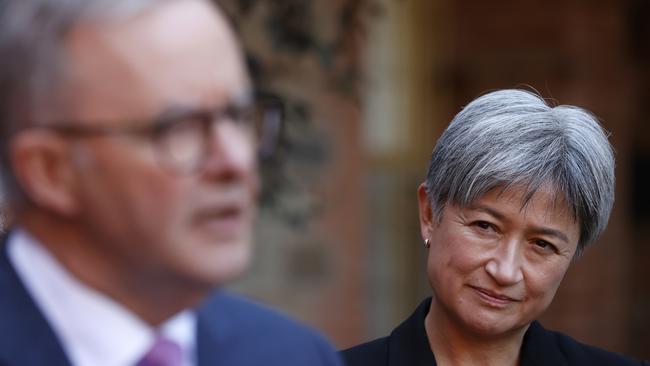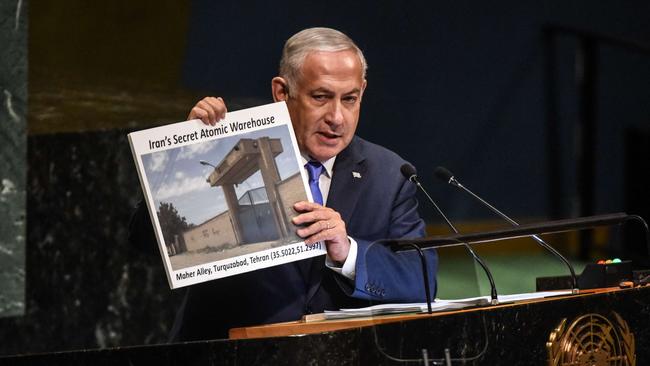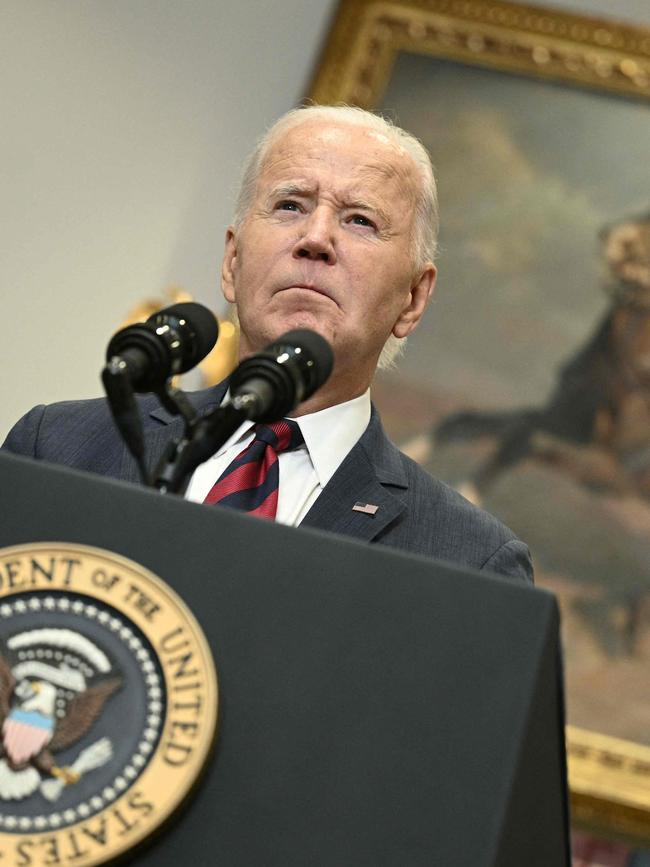
On October 7 last year Israel suffered the worst intelligence and defence failure since the country was founded. But now it has overcome internal political divisions to re-emerge as the strongest military power in the region.
Jerusalem has re-established deterrence dominance because of intelligence, targeting and force projection capabilities that its enemies can’t match. Now it is pushing hard to deliver a victory over Iran and its proxies that no one expected. The country has rallied because Israelis know their survival is at risk. The louder the “progressive” assault against Israel in Western democracies, the harder Israel will fight for its security.
By contrast, Iran is failing. Hezbollah, the jewel in the crown of Tehran’s foreign policy, has been blinded, its leadership killed or, literally, crippled. Israel may have started with the aim of pushing terrorist rocket launchers away from its northern border, now Benjamin Netanyahu has a shot to help the Lebanese rise up against the Iranian forces ruining the once-prosperous country.

Hamas and much of Gaza is destroyed. What emerges from the rubble will never commit atrocities again on their Jewish neighbours. War is cruel, but it is better to win than lose.
Tehran’s mullahs know many, probably most, of their people hate them. They rule by fear alone. They see the hollowness of their goosestepping military and dread Mossad’s proven ability to hit them any time they choose.
The Arab countries – Egypt, Jordan, Saudi Arabia and others – have never had less interest in supporting the fiction of a Palestinian state. They all hope Israel dismantles Iran’s proxies because these groups destabilise Arab governments.
President Joe Biden’s Middle East policy is in tatters. In October 2022, the centrepiece of his national security strategy was to “pursue diplomacy to ensure that Iran can never acquire a nuclear weapon”.
Last week CIA head Bill Burns said of Iran that “now it’s probably more like a week or a little more to produce one bomb’s worth of weapons-grade material”. Burns claimed: “I think we are reasonably confident that – working with our friends and allies – we will be able to see it relatively early on.”
So the CIA may know on Tuesday that Iran will have a nuclear weapon by Friday. If Iran is allowed to reach that point it will have more than one bomb. The Iranians must refine a large stockpile of enriched uranium to weapons-grade capability. There is enough for a dozen or more nuclear weapons.
This is as devastating an American intelligence failure as Israel missing the October 7 attacks – classic examples of not seeing the obvious while obsessing about details. Biden urged Netanyahu to “take the win” last April – meaning Israel shouldn’t retaliate against Iran’s first direct missile strikes.
Thankfully, Israel ignored the advice. Hitting back, the Israel Defence Forces showed they could disable Iranian air defence to hit any targets they wanted. That gave Tehran pause, but too late to wind back its support for Hezbollah, Hamas, the Houthis and other proxies. Tehran’s mistake – obvious in hindsight – is that it is one thing to train, fund, equip and motivate jihadist extremists obsessed with the “end of days” and wiping Israel off the map. It’s much harder to keep the crazies on a leash.
What happens next?
A compelling strategic logic drives Israel’s choice: it can do its best (which will be pretty good) to destroy Iran’s nuclear infrastructure or wait for Tehran to declare it has working bombs by Christmas.
Given that choice, what would you advise Netanyahu to do? Pause for a ceasefire maybe, so the proxies can rearm and start firing huge numbers of missiles at Jerusalem and Tel Aviv?
Or perhaps one would advise Israel to embrace a two-state solution, the effect of which would be to give Iran’s proxy Hamas or Fatah in the West Bank a seat in the UN. A pause gives Tehran time to reprocess the uranium it needs for nuclear weapons. No doubt the international community would firmly ask for inspectors to get access to the factories, allowing the CIA to shave a day or two off its week-long estimate for how long it takes to make a bomb.
This is the effect, if not the intent, of Albanese government policy. Australia lacks the courage, perhaps even the capability, to send a navy ship to the Red Sea to protect ships bringing goods and oil to Asia. But with no real stake in the outcome, we are urging Israel to halt combat operations so Iran has more time to build nuclear weapons.
Israel’s choice is clear – of course it will go after Iran nuclear weapons-building capabilities.
The plants reprocessing uranium into weapons-grade material aren’t mobile like the bombs will be. These targets can be “hardened” only to some extent and Israel has shown it has weapons that will dig deep into fortified underground spaces. Once the plan is made, the target set defines itself. Beyond the nuclear facilities, Israel must go after Iran’s air, missile and submarine capabilities, things that deliver nuclear warheads.

Israeli Defence Minister Yoav Gallant has said a strike will be “lethal, precise and especially surprising”, which indicates more things will be in the air than bunker-busting bombs. No one in Tehran will be answering their phones right now.
We will owe Israel a debt if it destroys Iran’s nuclear potential. If Tehran gets nuclear weapons, Saudi Arabia will do the same, followed quickly by Egypt and others. Fundamentally, we are all better off if Israel and the US dominate the Middle East military balance. The only thing that may prevent an Israeli strike is if Biden reverses course, pressuring Tehran into a backdown on attacking Israel, bringing the proxies to heel and walking away from nuclear weapons. I can’t see Biden, much less Kamala Harris, taking that tough course of action.
Donald Trump might, but the presidential election and inauguration could be after Tehran declares it has the bomb – another factor shaping Israeli thinking.
Tragically, the major Western democracies are locked on supporting Marxist (that is, “progressive”) street protest ahead of strategic thinking. A year after the Hamas atrocities, how is this working out for the Albanese government? Anthony Albanese cannot speak an intelligible sentence on the issue. Cabinet is a rabble of dithering, half-baked opinions. Labor has lost its Muslim vote: it can’t appease the jihadists and has alienated the moderates (if there are any). Mainstream Australia reviles the protesters as hoodie-wearing thugs.
Labor won’t change its approach. It doesn’t know how. Meanwhile, the war is moving rapidly to a decisive moment.
Watch for the cyber attacks. They’ll come first.






A year after the Hamas atrocities, put to one side the street theatre of protests and Labor’s confused talking points and ask: what really is happening in the Middle East?